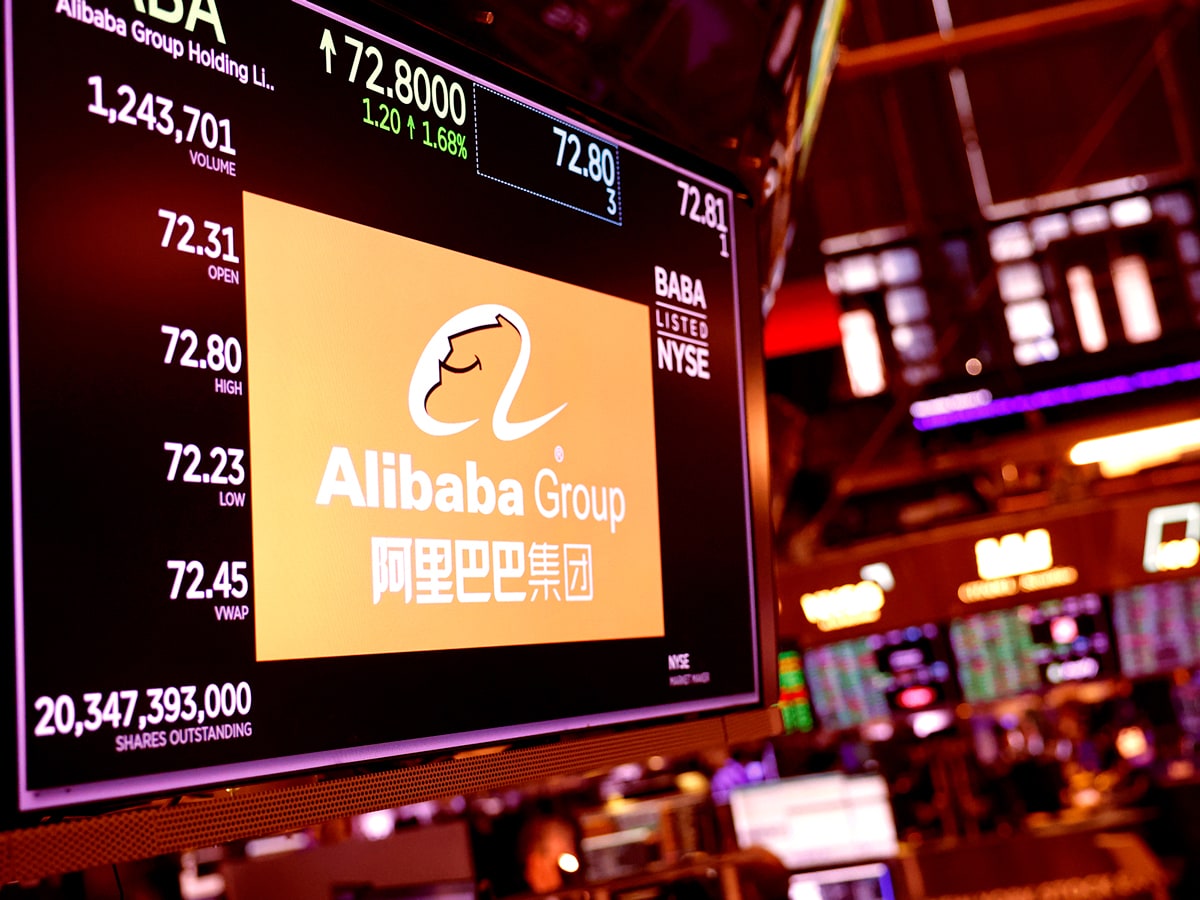China’s equities soared in the last week of September, as Beijing launched a stimulus package aimed at propelling the country’s economy to its growth target for the year. BABA stock is currently trading at a 52-week high, but Alibaba’s e-commerce business is under pressure from low-priced competitors.
Alibaba [BABA] is a Chinese e-commerce giant.
In March 2023, the company split into six units in a bid to unlock value for investors. Its operations span digital media and entertainment, logistics and cloud computing, but the biggest segment by far is its domestic e-commerce business.
This stock spotlight will discuss how Alibaba has been attracting the interest of some of the biggest hedge fund managers amid signals that Chinese stocks may have bottomed.
It will also look at the impact China’s recently announced stimulus package could have and the headwinds the firm could face in trying to catch up with its more budget-minded competitors: a slowdown in the market has forced many e-commerce stocks to cut their prices to attract cash-strapped shoppers. While Alibaba has long been the dominant player in the market, JD.com [JD] and Temu parent PDD Holdings [PDD] are hot on its heels.
Big Fund Managers Buy BABA Stock
Alibaba overtook fellow Chinese e-commerce stock JD.com as the top holding in Michael Burry’s portfolio in Q2, according to the most recent 13F filing. Burry’s Scion Asset Management added 30,000 shares during the quarter, increasing the value of his position from $9.05m to $11.16m. Alibaba accounts for 21.26% of the firm’s $52.49m portfolio.
Alibaba is also Appaloosa Management’s top holding. While the firm, led by David Tepper, trimmed its position by 7% in the three months to June 30, the stock accounts for 12.24% of the $6.18bn portfolio.
Data from Stock Circle shows that, in total, 10 institutional investors bought $404.3m worth of BABA stock in Q2, including Steven Cohen’s Point72 Asset Management. Seven institutional investors sold $295.2m worth of BABA stock during the quarter, including Ken Griffin’s Citadel.
All eyes will be on whether the big investors continued to add in Q3, especially in light of the stimulus package announced by Beijing last week, which sparked a rally in Chinese equities.
BABA Stock Hits New 52-Week High
BABA stock hit a 52-week high of $112.79 on October 1. In the week prior, the Hang Seng Index, where Alibaba is also listed, recorded its best week in 26 years.
BABA stock has gained 35.28% in the past month through October 1, 34.58% in the past year and 48.62% since the start of 2024.
How Alibaba Stacks Up Against JD.com and PDD
Alibaba reported a disappointing set of results for Q2. Total revenue climbed 4% year-over-year, but sales from domestic e-commerce slipped 1%, despite achieving “high-single-digit” growth in its gross merchandise value and “double-digit” order growth compared to Q2 2023. Net profit for the June quarter fell 9% compared to Q2 2023.
As well as weak consumer spending, Alibaba has faced growing competition from discount retailers JD.com and PDD targeting price-sensitive shoppers. PDD’s Q2 revenue was up 86% on the year-ago period, while its net profit surged 144%. Meanwhile, JD.com’s Q2 revenue rose a marginal 1.2% and its net profit jumped 69%.
Here’s how the fundamentals of the three Chinese stocks compare.
| BABA | JD | PDD | |
| Market Cap | $270.91bn | $65.74bn | $202.32bn |
| P/S Ratio | 2.09 | 0.43 | 4.39 |
| Estimated Sales Growth (Current Fiscal Year) | 10.50% | 6.00% | 65.50% |
| Estimated Sales Growth (Next Fiscal Year) | 8.60% | 5.30% | 28.20% |
Source: Yahoo Finance
Despite the mini rally the Alibaba share price has been on over the past month, the stock still looks undervalued given its low price-to-sales ratio. However, growth is projected to be sluggish over the next 18–24 months. Plus, if the stimulus package fails to have the desired impact on the Chinese economy, then it could weigh on BABA stock’s revenue forecast.
BABA Stock: The Investment Case
The Bull Case for Alibaba
Despite recent struggles faced by China’s e-commerce industry, BABA stock got a boost last week after Beijing said it would need to implement “necessary fiscal spending” in order to help the Chinese economy hit its 5% growth target for the year.
In further good news, it was announced at the end of August that Alibaba had completed a three-year regulatory “rectification” process. The company was hit with a $2.75bn fine for anti-monopoly violations back in April 2021.
Share buybacks increased “at a pace higher than past quarters” in Q2 to $5.8bn, according to Alibaba Chief Financial Officer Toby Xu. “This transaction underscores our confidence in our business outlook,” he said in the earnings release.
The Bear Case for Alibaba
Ahead of Singles Day, where shoppers go hunting for bargains every November 11, Alibaba is planning to spend approximately $5.7bn to help merchants on Tmall and Taobao drive sales.
It is a huge commitment, and could be a costly one if Alibaba fails to lure shoppers away from JD.com and PDD.
There is also the risk that Beijing’s stimulus could fail to inspire consumer confidence. If that happens then it could weigh on Alibaba’s near-term growth, dragging BABA stock down with it.
Conclusion
Chinese equities may continue to rally in the near term, pushing the Alibaba share price higher. However, questions remain about Alibaba’s long-term growth.
Ultimately, the question is whether Alibaba’s investments in its e-commerce business can help the company to fend off low price competitors JD.com and PDD. If the two continue to gain market share, then it could potentially impact the long-term value BABA stock can deliver for its shareholders.
Disclaimer Past performance is not a reliable indicator of future results.
CMC Markets is an execution-only service provider. The material (whether or not it states any opinions) is for general information purposes only, and does not take into account your personal circumstances or objectives. Nothing in this material is (or should be considered to be) financial, investment or other advice on which reliance should be placed. No opinion given in the material constitutes a recommendation by CMC Markets or the author that any particular investment, security, transaction or investment strategy is suitable for any specific person.
The material has not been prepared in accordance with legal requirements designed to promote the independence of investment research. Although we are not specifically prevented from dealing before providing this material, we do not seek to take advantage of the material prior to its dissemination.
CMC Markets does not endorse or offer opinion on the trading strategies used by the author. Their trading strategies do not guarantee any return and CMC Markets shall not be held responsible for any loss that you may incur, either directly or indirectly, arising from any investment based on any information contained herein.
*Tax treatment depends on individual circumstances and can change or may differ in a jurisdiction other than the UK.
Continue reading for FREE
- Includes free newsletter updates, unsubscribe anytime. Privacy policy





